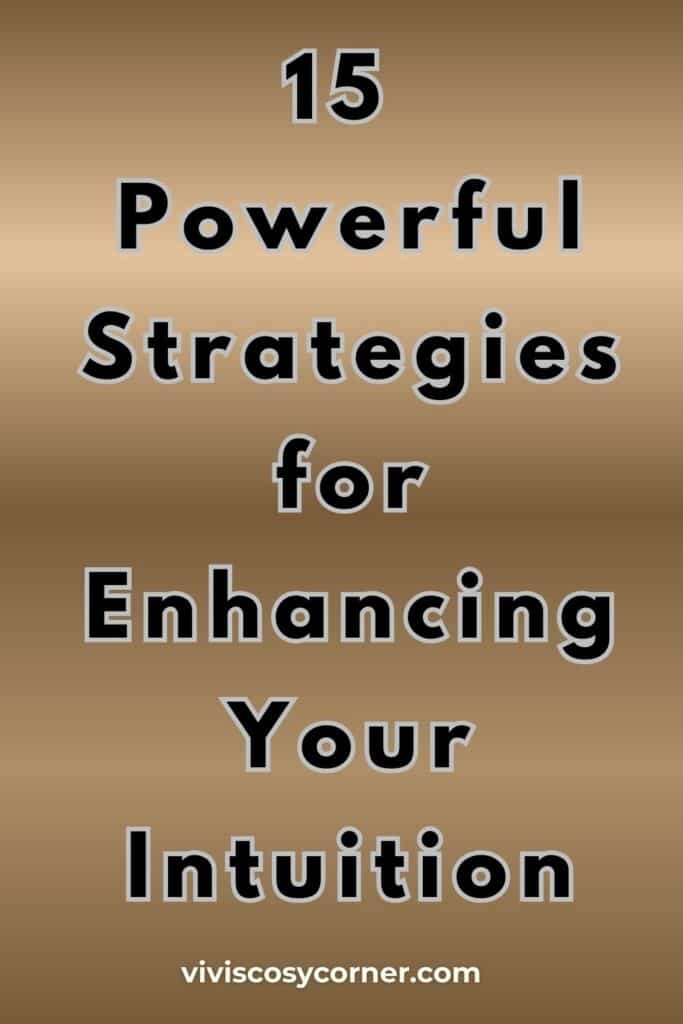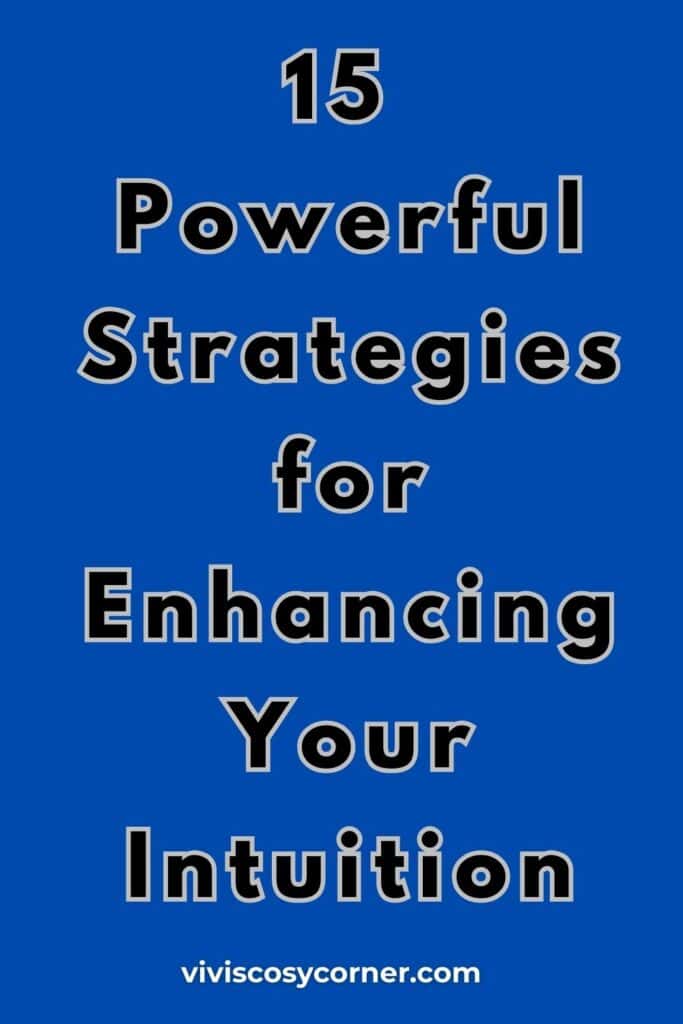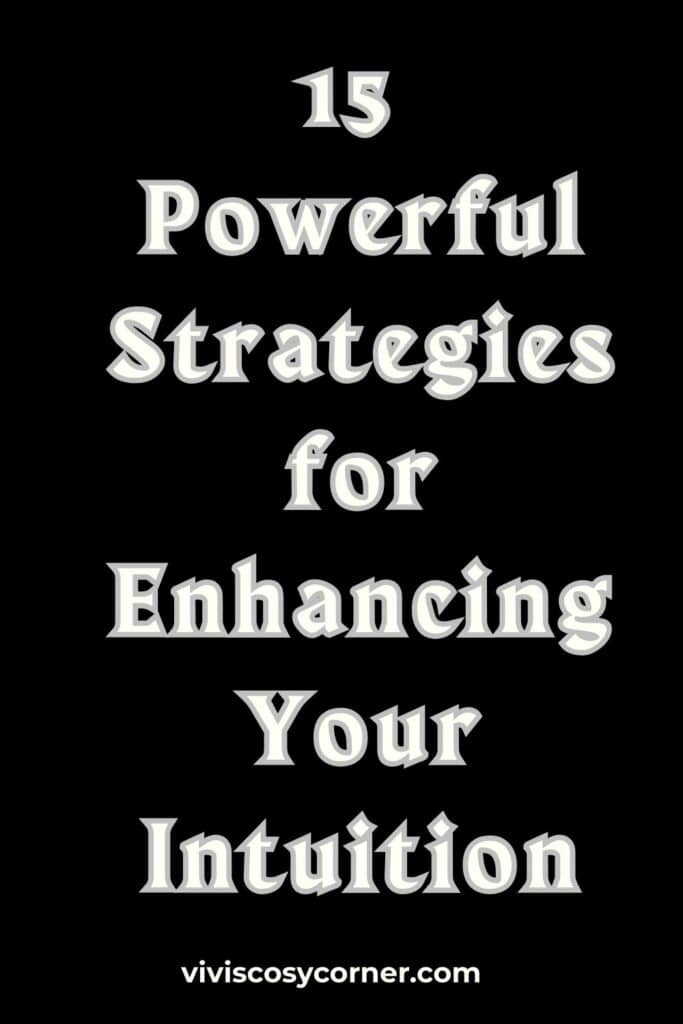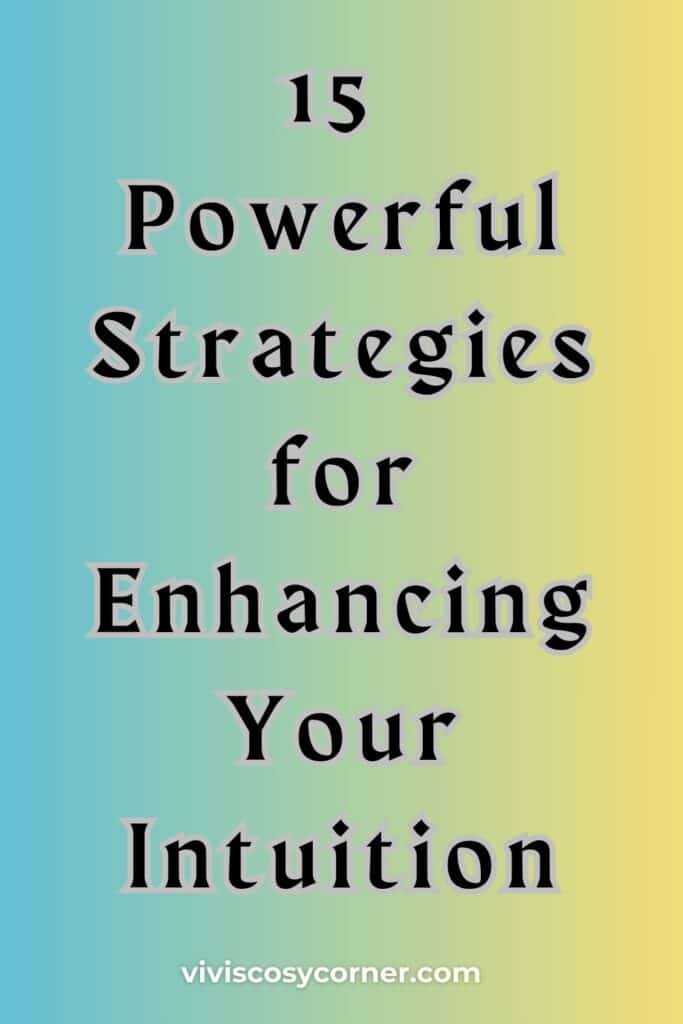Have you ever had a gut feeling so strong it was almost a physical force? That quiet whisper of knowing that cuts through the noise of logic, fear, and external opinions? That’s intuition.
Everyone of us can access our intuition although we have been taught to silence it and not trust it. In a world saturated with data and distractions, learning how to develop intuition is one of the most valuable skills you can master.

What Is Intuition?
Your intuition is a rapid decision-making tool; an inner compass that synthesizes past experiences, subtle environmental cues, and your deepest values into immediate insights. Intuitive thinking is the ability to feel your way to an answer, rather than reason your way to it. It’s when you follow a hunch, feel the energy in a scenario, or hear a subtle “yes” or “no” inside you before the evidence appears.
When you listen to your intuition, you acquire clarity, confidence, and alignment that no spreadsheet or outside opinion can deliver. It took me years to develop and trust my intuition, and it has not let me down. Intuition is rapid, instinctive, and frequently nonlinear.
The issue is learning to distinguish between intuition and fear, to trust your intuition even when logic disagrees, and to enhance it with practice. Intuition is like a muscle; it gets stronger the more you exercise it.

15 Powerful Strategies For Enhancing Your Intuition
Here are 15 powerful strategies, backed by mindfulness and practical decision-making strategies, to help you improve your gut instinct and truly connect with your inner voice.
Learn to Differentiate Between Intuition vs Fear
Fear is loud, panicky, and based on self-preservation. Even when intuition nudges you towards risk, it is calm, steady, and quietly confident. It’s like a whisper and a deep knowing without the use of words. It will continue to send you signals until you hear them, but only if you listen. Recognising this distinction is the basis of intuitive insight.
Practice Intuition Exercises with Small Decisions
Don’t wait for life-changing choices to practice. Try intuitive “reps” daily: choose a meal, pick a route, or send a message without overthinking. These intuition exercises strengthen trust in your inner guidance.
Anchor in Your Core Values
Your intuition speaks through your values. Before deciding, ask: Does this align with freedom, creativity, or family; my non-negotiables? Intuition thrives when choices honour your principles.
Become a Master Observer
Notice details others miss; body language, tone shifts, or patterns in your environment. Observation sharpens intuition’s data points.
Listen Beyond Words
Only 20% of communication is verbal. Tune into energy, pauses, micro-expressions, and gestures. Intuition thrives on these subtleties.
Decode Your Body’s Signals
A knot in your stomach, stiffness in your jaw, heaviness in your shoulders, lightness in your chest, or even a general sense of unease are not coincidences; they are signals of strong intuition warning you that something is amiss. Alternatively, when it seems right, you notice an openness, exhilaration, or a light sensation in your stomach. Discover your body’s language of truth.
Create Sacred Silence
Intuition whispers. Quiet your mind. Remove distractions. Make space daily for stillness: walks without headphones, a few minutes of breathwork, or simply sitting in quiet.
Keep A Journal
During sleep, your subconscious processes difficulties. Journal abour your intuitive experiences. Even recording dreams can provide solutions or nudges that you missed while awake. What happened when you followed your hunch? How did it feel in your body?

Release Emotional Baggage
Unprocessed anger, guilt, or resentment cloud your inner signals. Journaling, therapy, or mindful release practices create the calm space intuition requires.
Curate Your Circle
The people around you either amplify or silence your intuition. Surround yourself with those who uplift, not those who manipulate or drain.
Meditate with Non-Judgment
Meditation strengthens your ability to notice thoughts without attachment. This same awareness helps you detect intuitive nudges without dismissing them.
Practice Radical Mindfulness for Intuition
Ground yourself with your five senses: smell, taste, touch, sight, and sound. Your intuition is always a reaction to what is happening in the moment. Intuition is most obvious in the present moment.
Use the Snap Judgment Test
Write your question down. Record the first “yes” or “no” that surfaces instantly. Return later and notice if that instinct still feels right. Often, your first response is pure intuitive knowing.
Roleplay Potential Outcomes
Struggling with a decision? Live as if you’ve chosen one option for a few days, then switch to the other. Notice how your body and emotions respond, this is your intuition showing you the truth.
Experiment with Your Future Self
Test drive possibilities. Try new routines, roles, or projects. Notice what energizes versus what depletes you. Intuition reveals itself in how life feels, not just how it looks on paper.

The Power of Trusting Your Intuition
When you trust your intuition, you align your choices with your deepest truth. This is about partnering intuition with rational thought for stronger decision-making strategies.
Your intuition is innate. The more you nurture it, the stronger it becomes. Remember: your inner voice always knows the way, it’s just waiting for you to quiet the noise and listen.
Which of these strategies will you try first to improve your gut instinct?
Thank you for being a VCC reader.

